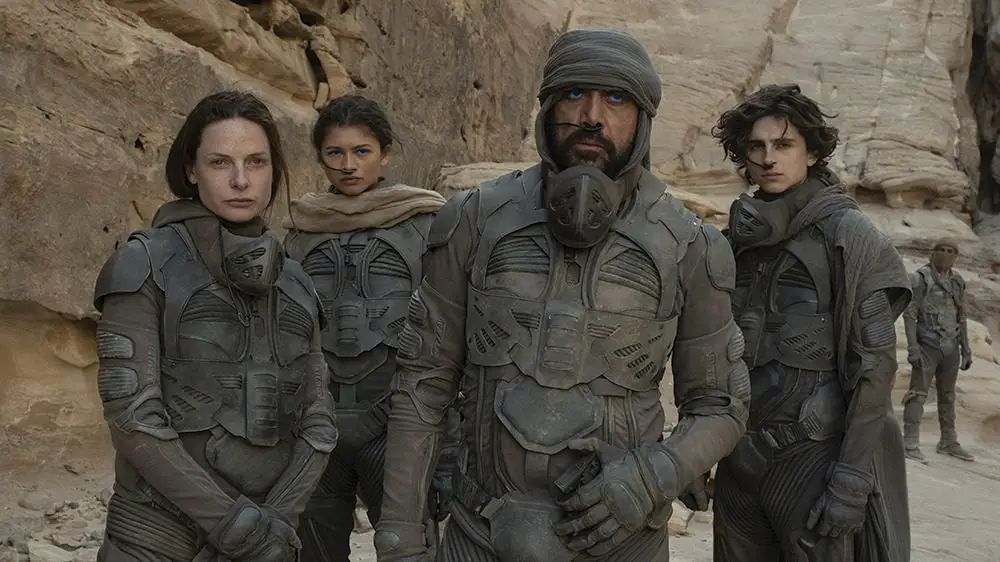“Dune: Part One”, released in 2021, marked a triumphant return to epic science fiction storytelling in cinema. Directed by Denis Villeneuve, the film adapted Frank Herbert’s iconic novel and amassed $402 million at the box office, despite pandemic-related delays and simultaneous streaming release. Its success, both financially and critically, set high expectations for its sequel, “Dune: Part Two“, slated for release in 2024. This sequel is not just another blockbuster; it represents a crucial moment for the science fiction genre and the trend of adapting expansive, complex narratives into multi-part film sagas.
In recent years, the trend of creating expansive, multi-part adaptations of complex literary works has seen a decline. Films like “The Lord of the Rings” and “Harry Potter” series demonstrated the potential of this approach, captivating audiences worldwide with their depth and fidelity to the source material. However, the success of such endeavors is not guaranteed, as seen in the mixed receptions of other adaptations. “Dune: Part One” revived hopes for this trend, balancing faithful adaptation with cinematic innovation, and its sequel carries the weight of these expectations.
Villeneuve’s vision for “Dune” was always ambitious. From the outset, he envisioned a two-part film series to do justice to Herbert’s dense and intricate narrative. His approach to adapting the novel for a contemporary audience involved streamlining its complex elements while preserving its essence – a coming-of-age story set against a backdrop of environmental exploitation and political intrigue. This balancing act is challenging but crucial for the success of “Dune: Part Two“. It needs to maintain the momentum and quality of the first film, ensuring that the narrative doesn’t lose its impact or coherence.
The performance of “Dune: Part Two” at the box office and among critics will be a litmus test for the future of such ambitious cinematic projects. A successful sequel would prove that there is still a significant appetite for well-crafted, epic science fiction sagas, potentially paving the way for more adaptations of complex literary works. On the other hand, if “Dune: Part Two” fails to resonate with audiences and critics, it could signal the end of this trend, pushing studios to shy away from similar projects in the future.
In summary, “Dune: Part Two” is not just a sequel to a successful film; it’s a beacon for the revival of a certain kind of storytelling in cinema. Its success or failure will have implications far beyond its own box office earnings, potentially shaping the trajectory of epic science fiction and fantasy adaptations for years to come. As we await its release, one thing is clear: the stakes are higher than ever for Villeneuve’s vision and the legacy of Frank Herbert’s Dune.


